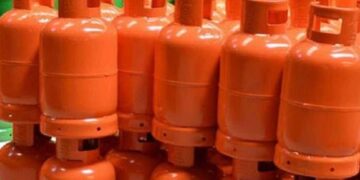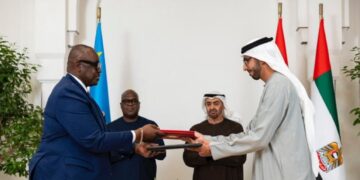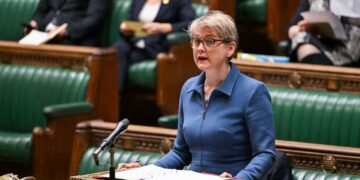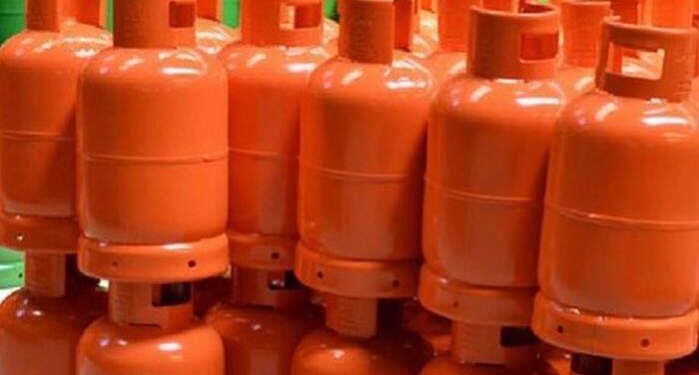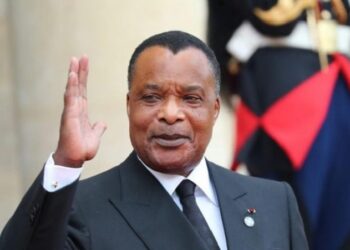By John Ikani
Consumers of gas in Nigeria are in for tougher times as market insiders suggest a forthcoming increase in prices, beginning next week.
The Nigerian Association of Liquefied Petroleum Gas Marketers’ President, Olatunbosun Oladapo, pointed to a combination of factors behind this impending hike.
He attributes it to “the rise in global prices, amplified tax rates, vessel expenses, foreign exchange scarcity, and the depreciation of the local currency.”
Oladapo notes that the surge in international prices and elevated vessel expenses are key drivers of this change.
The weight of taxes coupled with the lack of income growth for consumers has further exacerbated the situation.
“Consumers, middlemen, and retailers are feeling the impact because business is now on the low side,” said Oladapo in a chat with newsmen.
He went on to lament the unfortunate inevitability of the impending price hike.
The development is especially burdensome for Nigerian consumers, who are grappling with financial difficulties amid the elevated prices.
Oladapo stressed that many consumers have resorted to traditional cooking fuels like firewood, charcoal, and sawdust due to these rising costs.
While calling for government intervention to alleviate the plight of the masses, Oladapo urged the government to reduce taxes and levies, suggesting that taxing profits rather than products could be a more feasible approach.
He highlights the excessive burden of local taxes and calls on fellow marketers to consider consumers’ well-being while setting prices.
What you should know
The announcement follows recent media reports indicating that the scarcity of vessels in the international market could result in higher prices for Liquified Natural Gas (LNG), commonly referred to as cooking gas, in the months ahead.
The shortage of vessels has led to increases in charter rates, particularly in anticipation of the winter demand surge in 2023.
Spark Commodities data cited by Bloomberg shows that charter rates have surged to $284,750 per day for November and $206,750 per day for October, a stark rise from the current rate of $70,500 per day.
Vessel scarcity has prompted traders to utilize ships as floating storage, betting on an increase in LNG prices during colder weather. This trend impacts LNG traders’ margins and could potentially result in higher prices for buyers in Europe and Asia.
Notably, the scarcity of LNG vessels floating on water for extended periods has increased by approximately 27% compared to the previous year’s data. This scarcity and subsequent increase in charter rates are contributing factors to the projected rise in prices.
Nigerian LPG prices are intrinsically linked to global benchmarks, particularly the Nigerian Liquefied Natural Gas Contract prices. These prices are influenced by international market dynamics and can be adjusted either upwards or downwards in response to these changes.
The depreciation of the local currency also holds sway over domestic LPG prices. With the Nigerian naira facing devaluation, the cost of LPG for local consumers is directly affected. The Central Bank of Nigeria reports that the exchange rate was N749.62 to a US dollar.
Historically, Nigerian LNG sells its domestically produced cooking gas based on prevailing exchange rates to local off-takers. The prices for 20 metric tonnes of LPG in major depots in Apapa, Lagos, ranged between N10.7m and 11m from July 28 to August 7.
Recent months have seen local consumers benefit from lower gas prices due to international price drops. LPG prices dipped from an average of N730 per kilogram in June to around N600/kg in July. However, due to naira devaluation, prices have rebounded to N750/kg in August.
A report from the National Bureau of Statistics highlights the dynamics of retail gas prices. The average retail price for refilling a 5kg cylinder of cooking gas decreased by 6.71% month-on-month from N4,360.69 in May to N4,068.26 in June. Year-on-year, this marked a 3.56% decrease from N4,218.38 in June 2022.
In analyzing state profiles, Kwara recorded the highest average price for refilling a 5kg cylinder at N4,750.00, followed by Niger at N4,691.16, and Zamfara at N4,683.33. Conversely, Ondo recorded the lowest price at N3,287.86, trailed by Ekiti and Nasarawa at N3,288.46 and N3,364.62, respectively.
